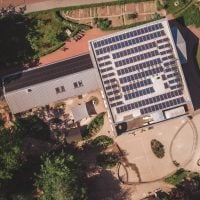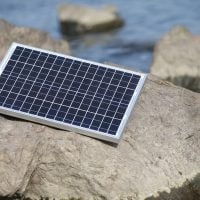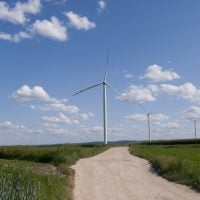Deadline: 28-Mar-23
The European Commission (EC) is inviting applications for the Non-plant biomass feedstock for industrial applications: technologies and processes to convert non-lignocellulosic biomass and waste into bio-based chemicals, materials and products, improving the cascading valorisation of biomass.
Scope
- Circular bioeconomy will rely on the availability of diversified and low/no-ILUC (Indirect Land Use Change) sources of biomass but also on the ability to design, develop and scale-up processes to valorise such feedstock towards high-value, sustainable bio-based products. Non-Lignocellulosic Biomass (NLBM),and related residual non-lignocellulosic biomass’, provide options beyond plant biomass. However, NLBM from aquatic and terrestrial sources, often face challenges to reach economies of scale and biorefining production intensification, driven also by a complex and varying feedstock composition.
- Project activities should address:
- Identification and optimization of suitable NLBM feedstock, with focus on higher resources efficiency and circularity, while respecting the waste hierarchy principles. Such feedstock to be deployed in adequate production systems, including upcycling approaches. More specifically, design and develop innovative upstream and conversion processes at pilot scale (e.g., via application of enzymes, industrial microbial hosts, microbiomes from natural ecosystems and diverse industrial biotech or other appropriate enabling technologies);
- Develop downstream conversion processes, building towards a targeted portfolio of high-value bio-based process outputs / bio-based products that can be later obtained in NLBM integrated biorefineries (of appropriate scale);
- Assessment of the proposed/developed innovative processes against techno-economic feasibility to valorise NLBM (waste) (at different potential biorefinery scales), showcasing/ensuring process flexibility to cope with the composition heterogeneity of the chosen NLBM feedstock(s);
- Application of ex ante life-cycle assessment methodologies to ensure gains in environmental performance (including biodiversity), but also socio-economic aspects, as well ensuring safety for the consumers and operators;
- Enable participatory approaches and knowledge sharing across circular bio-based value chains. This includes feedstock providers (rural, coastal, urban and peri-urban dimensions, as appropriate), bio-based (process) industry, end-users and the civil society, aiming for a comprehensive scoping of challenges (multiple dimensions) and opportunities of valorising NLBM and NLBM waste.
- Production of biofuels and bioenergy, as the main production focus, falls outside the scope of this topic (their co-production, while following the cascading biomass use principles, is not excluded though). Food/feed ingredients, cosmetics-related compounds and especially those with health-promoting properties (nutraceuticals), may be in scope, provided their toxicological and nutritional safety has been assessed and guaranteed at EU level.
- Where relevant, proposals should seek links and synergies as well as capitalise on the results of past and ongoing EU research projects under Horizon 2020, LIFE and Horizon Europe (especially under the Bio-based Industries Joint Undertaking (BBI JU) / Circular Bio-based Europe Joint Undertaking (CBE JU)].
- Proposals should also include a dedicated task, appropriate resources and a plan on how they will collaborate with other projects funded under this topic and other relevant topics.
- Social sciences and humanities (SSH) and social innovation aspects should be considered for this topic.
Expected Outcome
- A successful proposal will contribute to expected impacts under Destination ‘Circular economy and bioeconomy sectors’, related to consumers and industry, and in line with: the European Green Deal, the circular economy action plan, EU biodiversity strategy for 2030, the EU bioeconomy strategy & its action plan, the Waste Framework Directive and the EU industrial strategy.
- In particular, expected impacts to be addressed by successful proposals include: i) developing innovative and sustainable value-chains in the bio-based sectors and ii) enhancing European industrial sustainability, competitiveness and resource independence.
- Project results are expected to contribute to all of the following outcomes:
- Increased sustainability of biomass resources valorised in industrial applications, lowering land dependence and Indirect Land Use Change (ILUC) impacts, protecting biodiversity and respecting ecosystems integrity;
- Contribution to climate-neutrality (primarily via reduction of greenhouse gas emissions, and accessorily via increase of carbon removals),[1] zero pollution and resource efficiency via practical application of the circular (bio)economy concept;
- Improved industrial competitiveness, strategic autonomy and resource independence of bio-based value chains of EU Member States and/or Associated Countries, due to more sustainable industrial products and practices.
- Environmental, economic and social benefits on territorial and municipal level, due to increased circularity and upcycling of low-value, Non-Lignocellulosic Biomass (NLBM) (waste), of terrestrial or aquatic origin, including its upcycling into high-value applications.
- SMEs engagement, including the regional dimension, for skilled jobs creation.
- Increased cooperation and awareness across circular bio-based value chains, including waste managers, biomass feedstock providers, bio-based (process) industry, end-users and the civil society.
Eligibility Criteria
- Any legal entity, regardless of its place of establishment, including legal entities from nonassociated third countries or international organisations (including international European research organisations) is eligible to participate (whether it is eligible for funding or not), provided that the conditions laid down in the Horizon Europe Regulation have been met, along with any other conditions laid down in the specific call topic.
- A ‘legal entity’ means any natural or legal person created and recognised as such under national law, EU law or international law, which has legal personality and which may, acting in its own name, exercise rights and be subject to obligations, or an entity without legal personality.
- Beneficiaries and affiliated entities must register in the Participant Register before submitting their application, in order to get a participant identification code (PIC) and be validated by the Central Validation Service before signing the grant agreement. For the validation, they will be asked to upload the necessary documents showing their legal status and origin during the grant preparation stage. A validated PIC is not a prerequisite for submitting an application.
For more information, visit European Commission.









































